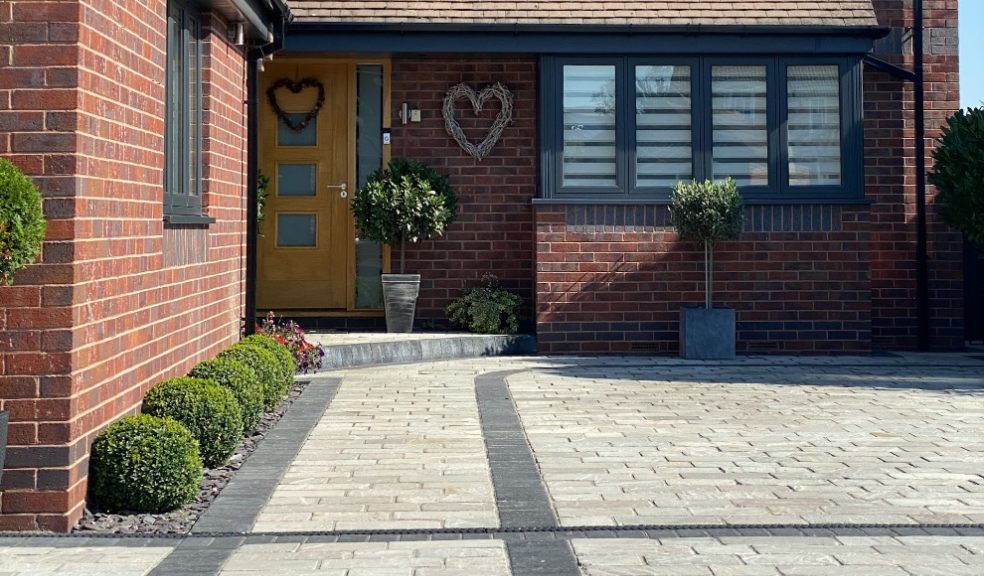
The Most Popular Types of Driveways in the UK and Ireland in 2025
If you're considering a new driveway for your home, you’ll want a surface that’s durable, attractive and suits your budget. With so many options available, choosing the right material can be overwhelming.
This post explores the most popular types of driveways in the UK and Ireland outlined by Driveways by Design, comparing their costs, durability, maintenance, and aesthetic appeal to help you make a better decision.
Concrete Driveways
Concrete remains a popular choice for modern construction—and for good reason. It’s one of the more affordable driveway materials available and is known for its strength and longevity. While it may not be the most visually striking option, concrete is a practical solution that can serve you well for decades with proper care.
Why Concrete?
As a driveway surface, concrete offers a clean, minimalist look and is a solid alternative to paving slabs or outdoor porcelain tiles. However, it does come with some limitations when it comes to design variety—there are fewer choices in colour and pattern, which can make it feel a bit plain over time.
Pros of a Concrete Driveway
A cost-effective option for homeowners on a budget
Straightforward and relatively quick to install
Long-lasting—can endure up to 30 years with proper maintenance
Offers a clean, modern aesthetic that suits many Irish homes
Cons of a Concrete Driveway
Vulnerable to cold weather—may crack if not properly de-iced in winter
Requires a setting time of around 7 days before use
Limited options for colour and design personalisation
Maintenance tip: Concrete driveways are generally low maintenance. To keep yours in top shape, de-ice in winter to prevent cracking in freezing conditions, and use a pressure washer occasionally to keep it looking fresh and free of stains or dirt buildup.
Tarmac Driveways (Asphalt)
Tarmac is a mixture of tar and crushed stone that’s laid hot and rolled smooth. It’s ideal for quickly and affordably creating a sleek, practical surface. Tarmac driveways are a common sight across rural and suburban areas in Ireland and the UK.
Why Choose Tarmac?
Tarmac is a cost-effective, low-maintenance option that provides a smooth, sleek finish. It’s widely used for residential and commercial driveways due to its quick installation and weather resistance.
Pros:
Quick installation – Can be laid and ready for use within days.
Affordable – One of the cheapest driveway materials.
Durable – Handles heavy vehicles well.
Low maintenance – Just occasional cleaning and resealing.
Cons:
Limited aesthetics – Only available in black (though coloured coatings exist).
Can soften in extreme heat – May become sticky in rare high temperatures.
Maintenance tip: Reseal every 3-5 years to prolong lifespan. Fill small cracks early to prevent spreading.
Gravel Driveways
A gravel driveway is made from loose aggregates—usually small stones—spread over a prepared surface. Gravel is one of the oldest and most cost-effective driveway materials used across the UK and Ireland.
Why Choose Gravel?
Gravel is a natural, permeable, and budget-friendly option that suits rural and traditional homes. It’s easy to install and provides excellent drainage.
Pros:
Cheap and quick to install – No specialist machinery needed.
Permeable – Reduces flooding risk (SUDS compliant).
Variety of colours – From golden limestone to grey granite.
Cons:
Needs regular raking and topping up as stones can migrate onto paths or roads
Not ideal for steep slopes – Can shift over time.
Weed growth – A weed membrane helps but doesn’t eliminate the issue.
Maintenance Tip: Rake stones back into place periodically and top up gravel every few years.
Resin Bound Driveways
A modern and increasingly popular option, resin-bound driveways combine functionality with sleek aesthetics. Resin-bound surfacing involves a mixture of aggregates and resin, trowelled to a smooth finish. It's fully permeable, making it ideal for areas with strict drainage rules.
Why Choose Resin Bound?
Resin-bound driveways bring beauty and functionality, with a smooth, porous surface and a modern look. Made from aggregate stones mixed with resin, it’s a luxury option that’s gaining a lot of popularity.
Pros:
Stunning finish – Smooth, seamless, and available in multiple colours.
SUDS compliant – Excellent drainage, reducing flood risk.
Low maintenance – No loose stones or weeds.
Durable – UV-resistant and long-lasting.
Cons:
Expensive – Higher upfront cost than tarmac or gravel.
Professional installation required – DIY is not recommended.
Maintenance tips: Be sure to do occasional jet washing to keep clean.
Natural Stone Driveways
Natural stone is any type of rock that has formed naturally over millions of years beneath the Earth’s surface. When used for driveways, natural stone paving slabs offer both strength and sophistication—making them a standout choice for Irish homes.
These slabs often feature a naturally riven texture, which provides excellent grip for tyres in all weather conditions—a major plus in Ireland’s often wet climate. Better still, natural stone comes in a wide range of colours, finishes, sizes, and patterns, allowing for a bespoke look that complements the style of your home and garden. No two driveways need to look alike!
Pros of Choosing Natural Stone Paving Slabs
Available in a wide array of colours, shapes, styles, and patterns
Brings a natural, high-end finish to your driveway
Easier to clean and maintain than loose surfaces like gravel
Highly durable and resistant to frost, making it ideal for Irish weather
Retains its attractive appearance over time with minimal fading
Cons
Requires sealing after installation, with resealing every few years
Needs proper drainage underneath—typically with a suitable base layer
Can be more expensive than other materials, depending on the type of stone
Maintenance tip: To keep your natural stone driveway in great condition, use a pressure washer and pH-neutral soap to clean the surface as needed. Take care when cleaning to avoid damaging the grout between slabs. Reseal the surface every few years to protect it from staining, weathering, and water ingress.
Block Paving Driveways
Block paving is one of the most sought-after driveway materials due to its versatility and visual appeal. Made from concrete or clay bricks, it offers endless design possibilities with various colours, patterns, and finishes.
Pros:
Highly durable – Resistant to cracking and heavy vehicles.
Customisable – Herringbone, basketweave, and stretcher bond patterns available.
Permeable options – Compliant with UK and Irish drainage regulations.
Easy repairs – Individual blocks can be replaced if damaged.
Cons:
Weed growth – Requires occasional weed control between joints.
Higher initial cost – More expensive than gravel or tarmac.
Maintenance tips: Regular sweeping and pressure washing works well to keep clean. Re-sanding joints every few years will keep it looking fresh.
Our Final Thoughts on Popular Driveway Options
According to brosnanlandscapingandpaving.ie, the best driveway depends on your budget, style, and maintenance preferences. Block paving and resin-bound lead in aesthetics, while tarmac and gravel offer affordability. Natural stone is unbeatable for a truly timeless look. Ready to upgrade your driveway? Be sure to compare quotes from local installers to find the best option for your home!




















